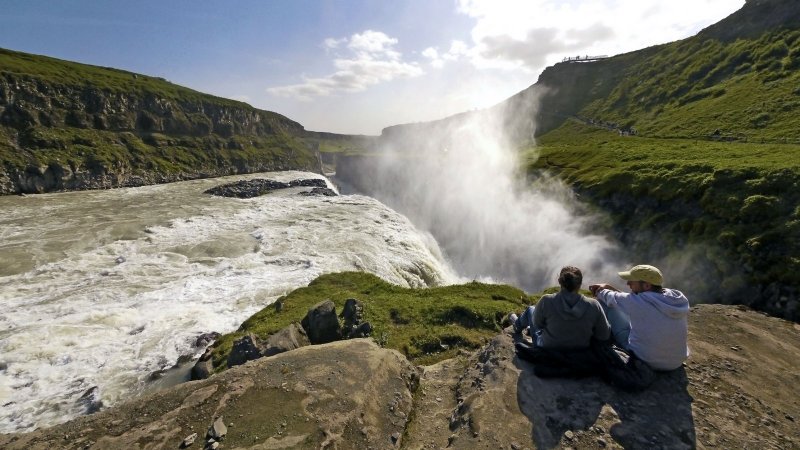Simply ask anyone around you what the ultimate goal in their lives is. They’ll probably answer such things as being rich, getting a new house, starting a family or travelling around the world. If you inquire long enough as to why they would want to achieve those goals, they’ll probably eventually reply (if they don’t get too fed up with your constant questioning of “But why? What for?”): To be happy!
Being happy is behind every single human goal, objective, mission and wish to achieve that “something” that has never truly been defined concisely, but that everyone seems to aim for. The achievement of happiness, the quest for happiness, the search for happiness. The U.S. Declaration of Independence even enshrines, in the words of Thomas Jefferson, “the right to life, liberty, and the pursuit of happiness” as fundamental to the American people.
How can something so vague as happiness, so difficult to explain by anybody that doesn’t have skills in poetry or art or the scientific knowledge to discuss endorphins and dopamine, be everyone’s ultimate goal in their own lives and, if they’re conscious enough, in the lives of their fellow human beings?
Some say that happiness is simply the absence of suffering. Others claim that it cannot be measured on its own, but rather must be scaled against other more measurable values, such as money, work success and stress levels. But as we try to measure happiness against those static or tangible values, we find that they don’t match. Not only does more money fail to guarantee happiness, but sometimes it brings the complete opposite: For some people having less money means less to worry about. Less to worry about, less suffering. Ergo, happier people. Low stress levels don’t equate to happiness either. Some people with a completely full-throttle job with not one second to rest or to relax are happier than people with perfectly safe, secure and stress-free office desk shifts. Sometimes people with no visible stress are miserable.
Since happiness can’t be measured with more or less money, more or less stress, more or less possession of degrees and titles and property, we need to ask ourselves a question. This is not an easy question, but it opens our minds to a hint of the answer. Here goes:
Are we wasting our time looking for happiness?
Why would I ask such a strange question? Haven’t I just stated that happiness is what moves us? Isn’t true happiness what everyone wants to achieve – to be able to proudly claim, at the end of their days: “I’m a happy person”? Then why would looking for happiness be a waste of time?
The question hints at the answer. And the answer is because happiness can’t be looked for, or searched for, or obtained. We can obtain more money. We can obtain a relaxed life. We can obtain a safe environment. Sure, these things seem to make it easier to become happy persons. But we can’t obtain happiness, the same way we can’t obtain “wise” or “better.” It’s not something we can have; it’s something we just are. We can be happy, not obtain happiness. And if we know we can be happy, the same way we can be wise, we can be better or we can be loving, then the next question is “What can we do to be happy?”
Ah, that opens up a new set of possibilities. First, anything we do could set us in the “happy” state of being. We could be happy while driving, while cooking, while playing with our kids, or while filing a tax return form. If we are conscious of what we are doing and really experience the whole set of feelings that surround our actions, we discover that happiness is among them. So happiness is our state of being! It’s not something out there, waiting to be found and claimed. It has been within us, intrinsic to our existence, this whole time.
Knowing this, we discover some other interesting things: When we are truly happy, we want others to be happy. So the more we make others happy, the happier we become. When we are truly happy, we don’t need anything else. We just enjoy the moment. So the more we live in the present, and the less we need, the happier we are. And lastly, when we are truly happy, we find that there’s no need to obtain, to possess, to search for anything. Happiness is all inside us; in fact, it is us. The goal has been conquered, for the goal and the seeker are one.

